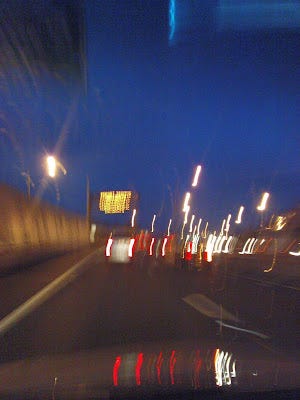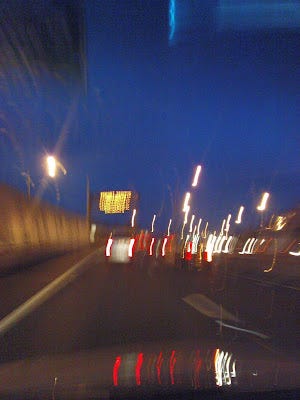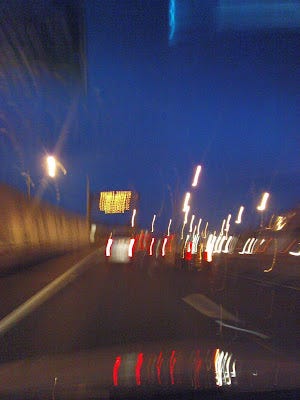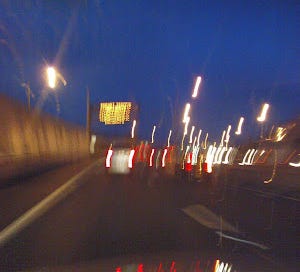*

He had woken up at the end of his own life; felt frail, felt feverish, indistinct, unreal. Outside the sun beat down mercilessly. Yet all was frail, all was unreal. He could not connect. He did not want to go outside. He did not want to see what there was to see. Mass murder was just another item in a crowded life. Too much had been absorbed. He was skipping across fate lines and was now at the end of one path, the beginning of another. Times were quiet, muffled, indistinct. Shadows were everywhere, yet he couldn't see past them. There were other things to be doing, yet he could not do them, not here, not now. It was going to be a long time before he felt sane again.
If memory kept him alive, they too were feeble and indistinct. If life boiled down to only a few distinct fates, what did it matter what path he chose? He had done as much of the right thing as he could possibly manage. He had done the right thing by his children as best he could. There were paths and there were paths. There were bungalows by the sea and futures not yet written. There were quiet times and enormous pain. Shame, guilt, regret, remorse, it rolled off his tongue. Cunning, baffling, powerful, it rolled off his tongue. There was no answer. There was no solution. There was no way back. Lost opportunities were simply that, lost.
If all was removed, if all was taken back, what lay behind? There were brief flashes, flesh on flesh, brief loves in other decades, and even then, no way back, not really, not except for brief flashes of altered time, images that could almost be real, connections that could almost be made. He had finished City At The End Of Time, In the beginning was the word, and the feverish intensity of the book which had fitted so remarkably well with the intensity of Bangkok and his own fragile deliriums, was already fading. There would be other worlds, other places, other times. He didn't even know why he had begun this, or where it would end. He wasn't who he used to be.
At the end of all time, or the end of their own times, when they were buffeted before oblivion, other things would settle, other truths were out. He was living his life backwards, trekking back through places he had already been. Even the Riverside Bar, he had been there before in a different time, with the legless beggars stopping at their table, the elephant walking down the street, the American stopping at their table to shout them a beer before being caught up in the swirl of the traffic and whatever else he was up to, in the multiple fate lines that represented every single day in this terrible, heat blitzed frontier, in this place where cruelty and opulence jostled each other.
Broken down and broken apart, he had tried to call his kids but couldn't get through. He could see the shadows rising. He could feel fate turn to a crisp. He could send them running and never see them again. He could hand everything over and hope for the best. Nothing was sane. Nothing was sacred. Feverish dreams haunted him even while awake. Feverish and indistinct. There was nothing to hold on to. He saw his name held up by the driver in the waiting crowd at Pnom Penh airport, that name which had been viewed in so many different contexts, here in such a different place. All would be well, but it wasn't well now. Feverish and indistinct, these days were simply to be endured. Let it go now, let it go.

THE BIGGER STORY:
http://www.abc.net.au/news/stories/2010/02/27/2831982.htm
Political commentators are warning the decision to seize more than $1 billion belonging to Thailand's former prime minister might precipitate a 'final showdown' between his red shirt supporters and the yellow shirts who support the army and the monarchy.
Thailand's Supreme Court had prepared for the trial for weeks and the interest in it was so high that the entire seven-hour verdict was broadcast live on television.
Thaksin Shinawatra still has many supporters in Thailand, and as the decision was read out his red shirt supporters were seen crying on television.
An extra 20,000 security personnel have poured into Bangkok in recent weeks in the expectation it would provoke riots.
On the one hand the decision legitimises the army's decision to stage the 2006 coup on the grounds Mr Thaksin was corrupt, while letting him keep the assets he earned prior to becoming prime minister.
Pavin Chachawanpunpang, from the Institute of South East Asian Studies, says the verdict was seen as something of a compromise.
"Thaksin has always claimed that prior to becoming prime minister for 2001 all the assets and the money he earned honestly, so this portion of money Thaksin says that the court should not take it away," he said.
"So it's a good decision for the court, but obviously because of the military coup in 2006 they had to find some kind of justification."
http://www.news.com.au/national/humbled-kevin-rudd-admits-failings-after-garrett-demotion/story-e6frfkw9-1225834987287
KEVIN Rudd has admitted his Government has "disappointed a lot of people" and let itself down by not living up to its promises or talking enough.
In a candid interview with columnist Laurie Oakes, the Prime Minister admitted he had been too focused on policy details and had not spent enough time explaining his climate change scheme to voters.
"We've disappointed a lot of people," he said. "We've let ourselves down."
The debate over the bungled handling of the Federal Government's home insulation scheme "reflects a wider disappointment in the community about what the Government has done".
Hours after the interview, he demoted Peter Garrett and announced a rethink in his Government's climate policy.
The Government's "Mr Fix-it", Greg Combet, has been handpicked by Mr Rudd to find a solution to the insulation mess. The scheme has been dumped after the deaths of four workers installing insulation batts, dozens of house fires and faulty insulation leaving more than 250,000 homes potentially unsafe.
Mr Rudd had stood by Mr Garrett for weeks amid sustained pressure from the Opposition over the scheme. But yesterday afternoon he cut his losses.
"Let's not try to sugar-coat this," Mr Rudd said. "This represents a reduced range of responsibilities."
But Opposition Leader Tony Abbott said Mr Rudd "can't even sack a minister properly."




